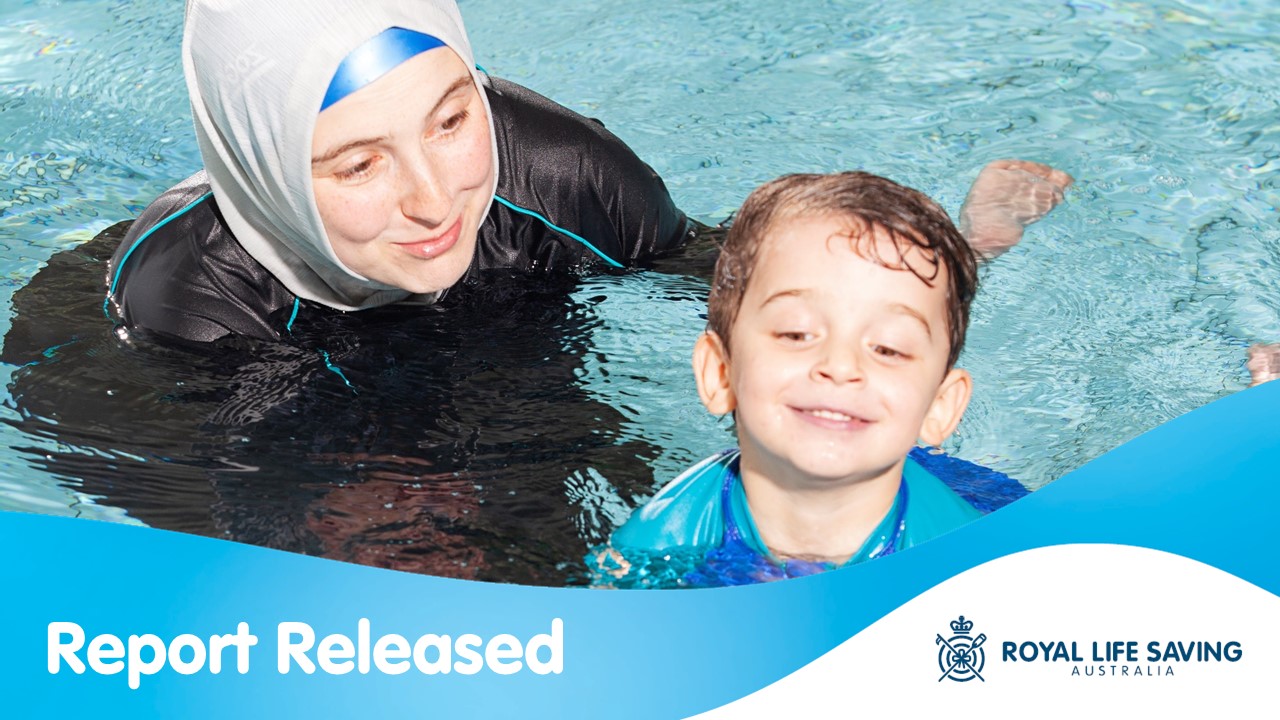Published 12 September 2022

Public pools (including council-owned indoor or outdoor pools, and commercial pools or fitness centres, university/school pools and commercial learn to swim centres) offer a safe place to swim and learn water safety skills. These spaces are also where supervision messaging can be effectively communicated to parents and guardians. Preventing child drowning at public pools requires a collective effort between aquatic facility staff, parents and guardians. The Australian Water Safety Strategy has committed to reducing drowning in public pools by 50% by 2030.
Tragically, despite the design expertise and skilled management of these spaces, child drownings at public pools do occur. An average of 1.2 children aged 0 – 14 years drown each year in a public pool in Australia. Children aged 5 – 9 years represent the majority of these drownings (61%).

Royal Life Saving Society – Australia (RLSSA) is publishing an analysis of industry supervision programs available at public pools. Two programs are available for public pools to register for: Keep Watch at Public Pools (KWPP) and Watch Around Water (WAW). These two programs have been developed by industry peak associations and implemented at pools for over 20 years, however only 31% of Australia’s 2,113 pools are currently registered for either program.

Further research is being conducted to:
- Determine which messages and interventions are effective in positively influencing parent and guardian child supervision practices; and,
- Determine which elements of programs are effective in supporting aquatic facility staff and management in applying their child supervision policies and practices.
This research will seek to include a range of diverse parent and guardian voices, across a range of geographical and socioeconomic areas and delve deeper into the nuances of family life in relation to supervision behaviour. The aim is to further understand how parents and guardians adapt their behaviours based on these messages.
Understanding the perspective of pool staff is integral to ensuring the available child supervision programs are also meeting their objectives. Aquatic facility staff, including front desk staff, lifeguards and pool management, will be invited to be part of the study, either through interviews or focus group discussions and will include facilities providing both supervision programs.
The findings of this research are expected to be released in mid-2023.
